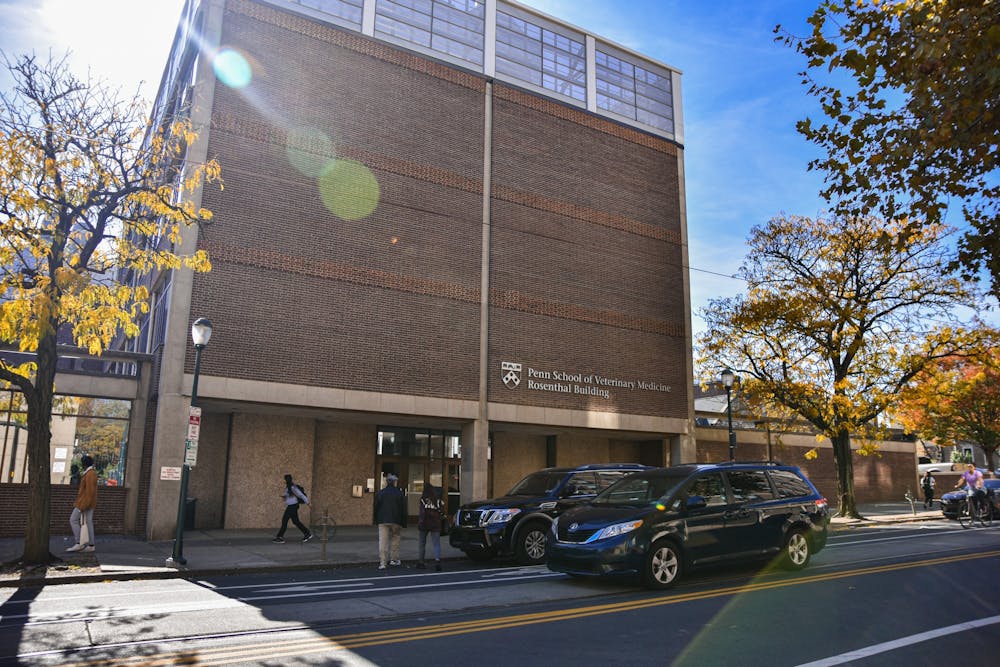
The School of Veterinary Medicine has launched the Center for Stewardship Agriculture and Food Security to support researchers in animal agriculture by connecting them with other Penn centers.
Located at the New Bolton Center, a Penn Vet hospital located in Chester County, CSAFS aims to “drive sustainable agricultural and veterinary healthcare practices and methods, while addressing the world’s growing nutritional demands.”
Laurel Redding, an assistant professor of Epidemiology at Penn Vet and leader at CSAFS, emphasized that there is a need for the Center to determine how to produce enough food to sustainably feed a rising global population. Penn, she said, is the ideal place to do this work because of its wide variety of faculty who have expertise that the Center can leverage in the research and advising process.
“It's the right place and the right time to launch this center,” Redding said.
Zhengxia Dou, a professor of Agricultural Systems, said that the work of this center involves both research and advocacy. She added that the information generated through scientific research, which has to do with sustainable consumption of the individual, will be delivered into a “more readily acceptable” language for the general public.
Redding added that the Center aims to involve all stakeholders — researchers, the public, and farmers — in a “solutions-driven approach” when considering the climate crisis and agriculture.
The Center addresses questions through “Clusters of Excellence” — categories concerning different aspects of agriculture and food security: Animal Welfare, Climate Impact, Food Security, Human Health Interfaces, and Regenerative Agriculture. A range of faculty from Penn Vet collaborate to conduct research under each cluster.
Redding said that she has found that it is “absolutely necessary” for veterinary medicine to be at the focal point of this research.
“Veterinary professionals are the gatekeepers of animal health, and animals represent a lot of what feeds the world,” she said.
Redding added that she sees potential for CSAFS to shape public policy. The main focus of the Center, she said, is to conduct research that will influence policy encouraging sustainable agricultural practices. Dou agreed, saying that agricultural management is applicable worldwide, and the reach could be global.
Both professors also spoke about the value of CSAFS in collaborating with other Penn centers, such as the Center for Innovation, the Kleinman Center for Energy Policy, and The Water Center.
Though the center is brand new, Dou anticipates that green resources and research opportunities will grow, "with greater impact for all.”
The Daily Pennsylvanian is an independent, student-run newspaper. Please consider making a donation to support the coverage that shapes the University. Your generosity ensures a future of strong journalism at Penn.
Donate




